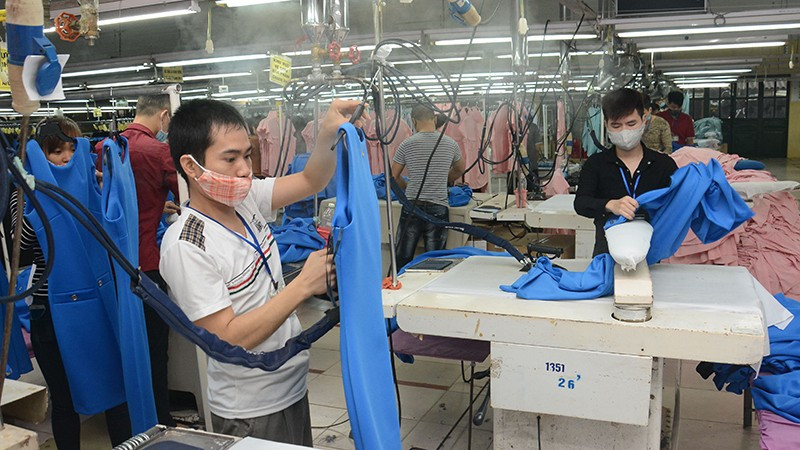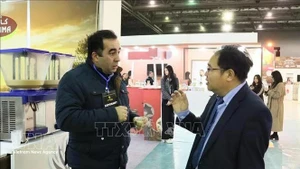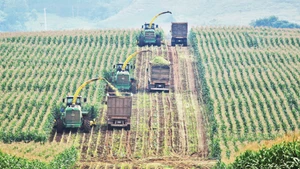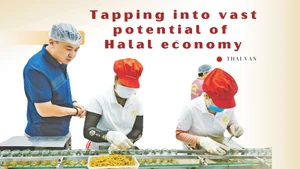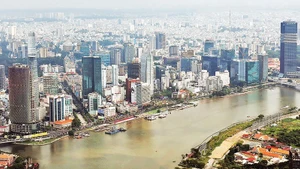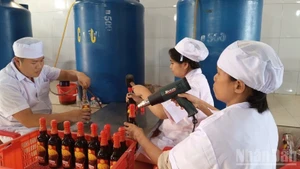The profound change in the global economy after the COVID-19 pandemic has prompted countries to seriously consider the requirements of sustainable development, increase the level of independence and self-reliance of the economy, and strengthen the resilience of the economy supply chain tolerance. In which, the circular economy is seen as an important direction.
Proposal in four priority areas
Dr. Nguyen Thi Hong Minh, Director of the Central Institute for Economic Management (CIEM), said that to encourage the development of the circular economy, it is necessary to have a trial mechanism (sandbox), instead of just applying the traditional approach.
The objective of the circular economy pilot policy is to create peace of mind for investors and businesses and to test ideas and initiatives on the circular economy.
Sharing about the process of developing a draft Decree on the pilot mechanism for circular economy development, the Head of the CIEM General Research Department Mr. Nguyen Anh Duong mentioned lessons from international experience.
In order to encourage the development of the circular economy, it is necessary to have a trial mechanism (sandbox), instead of just applying the traditional approach. The objective of the circular economy pilot policy is to create peace of mind for investors and businesses and to test ideas and initiatives on the circular economy.
Dr. Nguyen Thi Hong Minh, Director of the Central Institute for Economic Management
Accordingly, the determination and open-mindedness strongly oriented towards the economic aspect of the circular economy, are of great significance, from which to have the most comprehensive circular economy approach on the national level, with a complete legal framework system.
For resource-intensive economies, a transition towards a circular economy can offer many opportunities to pursue economic diversification and access higher-value markets.
Based on international experience and the reality of Vietnam's economy, CIEM proposed to choose to apply the pilot mechanism to develop a circular economy for four fields: Agriculture, forestry and fisheries; industry; energy; building materials.
The specific contents of the pilot policy include the policy of industrial zones and economic zones; green classification policy; technology consulting, technology transfer; green credit, green bonds; labour training and land policy.
Green funding method
As an industry with very early access to the circular economy model, to meet the requirements of export markets, Vietnam's textile and garment industry has gradually shifted its focus to sustainable development and circular business, to meet the needs of the new development trends in the world.
One of the difficulties of this development orientation is the ability to access financial resources.
According to Vice President and General Secretary of the Vietnam Textile & Apparel Association (VITAS) Truong Van Cam, currently, this key export industry has a huge capital need for green transformation, renewable energy development, circular business, traceability of labour and environment, to meet the requirements of import markets from the EU, the US, etc.
Emphasising the need to soon have a pilot mechanism for capital mobilisation in the circular economy, Dr. Vo Tri Thanh, Director of Brand Strategy and Competition, said that this is the experience from the practice of countries around the world, which has gone ahead in digital transformation and green transformation. Traditional funding methods will no longer be relevant in the new context.
He also cited the data: Vietnam's green financial movement has had some positive signs in the past time. Green credit from 2017 to 2022 increased by an average of 22% per year, and large economic groups in Vietnam such as Vingroup, BIM Land, and EVNFinance began to issue sustainable corporate bonds in the international market.
However, the above figures are still at a rudimentary level, showing that the perception of green finance is still weak, while this is an important factor, there needs to be a clearer and safer mechanism in the legal system and policy.
This fact shows that Vietnam needs to accelerate the completion of mechanisms and policies, including a pilot mechanism for new business models, and promote the development of the green bond, green stock and green credit market.
The determination and open-mindedness strongly oriented towards the economic aspect of the circular economy, are of great significance, from which to have the most comprehensive circular economy approach on the national level, with a complete legal framework system.
In addition, it is also necessary to develop and complete the carbon credit trading floor, trading products, market members and transaction brokers, and trading objects; in particular, it is necessary to consider establishing a green investment bank as in some countries or forming a green credit-finance fund to provide green capital for important projects.
According to economic experts, green finance and green credit will play a decisive role in the transition to a circular economy.
Accordingly, the pilot mechanisms should focus on investment incentives, creating favourable conditions for businesses to invest in circular economy projects, and green projects, and supporting access to resources to hire and buy new technology solutions.
